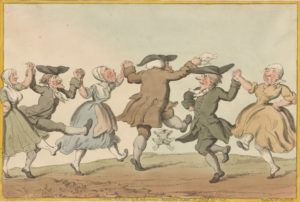Can Judges and Lawyers Be Facebook “Friends”? It Depends Where You Are.

An attorney can be friends with a judge IRL (in real life). Now they can be Facebook friends too–at least in the Third District.
The Third District Court of Appeal, recognizing the evolving influence and role of social media in our society, has held that a judge should not be disqualified from a case for merely being Facebook “friends” with counsel for a party.
In Law Offices of Herssein and Herssein, P.A., v. United Services Automobile Association, 3D17-1421 (Fla. 3d DCA Aug. 23, 2017), the petitioners filed a writ of prohibition, seeking to disqualify the trial court judge because a potential witness and a potential defendant was listed on the judge’s personal Facebook page as a “friend.”
This issue has nearly a decade of history in Florida law. Â In 2009, a Judicial Ethics Advisory Committee Opinion said that a judge may not add lawyers who may appear before him as “friends” on social networking sites, and vice versa. Â In 2012, the Fourth District relied on the JEAC Opinion and granted a writ of prohibition, disqualifying a judge because he was Facebook “friends” with the prosecutor, Domville v. State, 103 So. 3d 184 (Fla. 4th DCA 2012).
Then, in 2014, the Fifth District granted a writ of prohibition because the trial judge “reached out” to a party in a dissolution case while litigation was pending and tried to “friend” her on Facebook.”  Chace v. Loisel, 170 So. 3d 802 (Fla. 5th DCA 2014).  While clearly what the trial court did was wrong, and factually different than the issue in Domville, the Chace court went on to express “serious reservations about the court’s rationale in Domville.”  The Fifth District said that “there is no difference between a Facebook ‘friend’ and any other friendship a judge might have,” and that “Domville’s logic would require disqualification in cases involving an acquaintance of a judge.”  The Fifth District also noted that “A Facebook friendship does not necessarily signify the existence of a close relationship.”
This is the legal landscape in which the Third District decided Herssein. Preliminarily, the court recognized that merely being “friends” in the conventional sense has been historically insufficient to warrant disqualification of a judge.  It then latched onto the Fifth District’s statement regarding the closeness of Facebook “friends,” applying this rationale for three reasons:
- “Some people have thousands of Facebook ‘friends,'”
- “Facebook members often cannot recall every person they have accepted as ‘friends’ or who have accepted them as ‘friends,'” and
- “many Facebook ‘friends’ are selected based upon Facebook’s data-mining technology rather than personal interactions.”
The Fifth District noted that Domville had been decided many years prior, in a quickly-evolving technological landscape–stated simply, times have changed.  It certified conflict with Domville, and denied the petition, holding that merely being Facebook “friends” with someone no longer demonstrates closeness of a relationship.
So where does that leave us practicing attorneys?
- In the Third District, whether you are Facebook “friends” with a judge is irrelevant to whether your actual relationship is sufficiently close to warrant disqualification.  See Herssein.
- In the Fourth District, being Facebook “friends” with a judge is sufficient on its own to warrant a disqualification.  See Domville.
- The Fifth District’s dicta suggests it would side with the Third District, but it has issued nothing precedential upon which to rely.  See Chace.
- Neither the First nor Second Districts have spoken on the issue.

